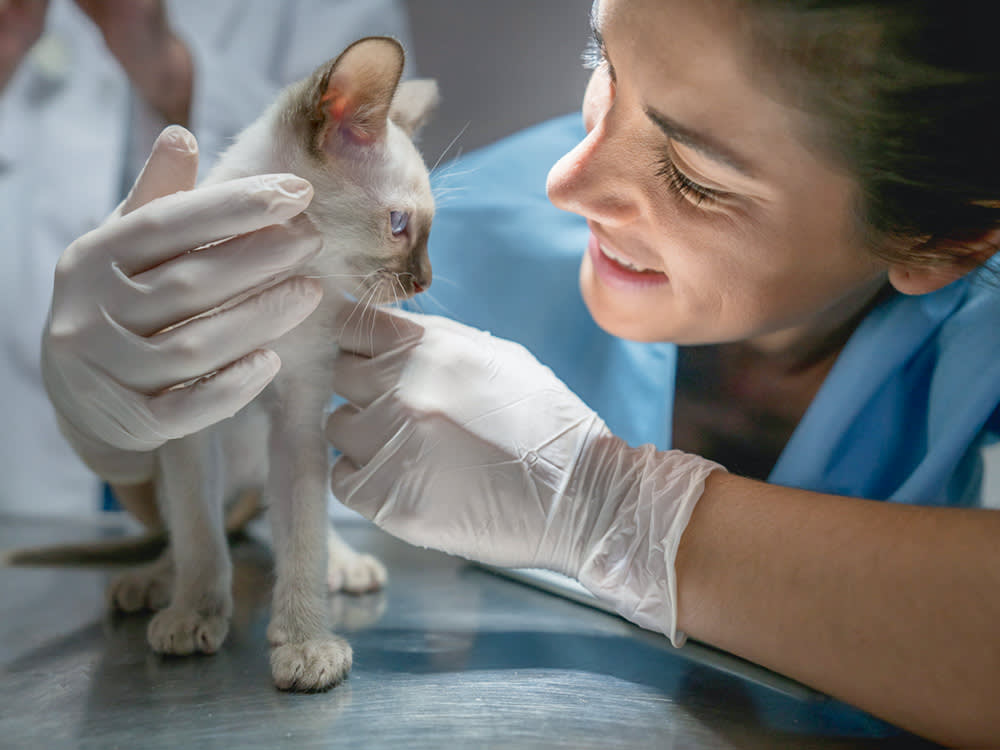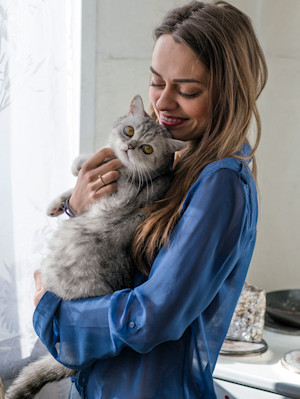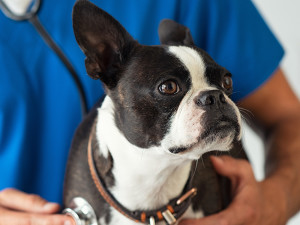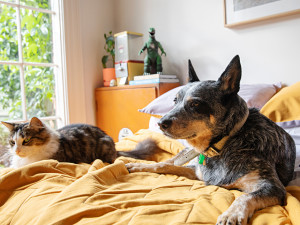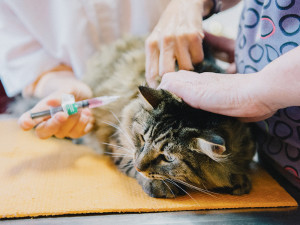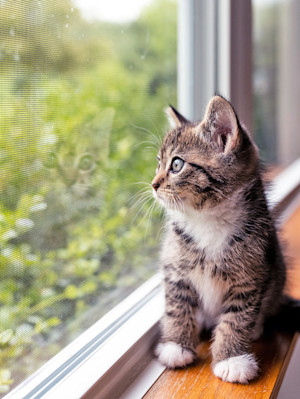Here’s How Much Kitten Vaccinations Cost in the UK
It’s crucial to make sure your kitty is protected against potentially fatal diseases
Kitten vaccinations Kitten vaccination cost Vaccination cost factors Cat vaccination frequency Pet insurance for cat vaccinations FAQs
As well as the fun parts of having a cat (cuddles on the sofa, playtime, having them ‘help’ you with your work by sitting on your laptop), healthcare is also a vital part of pet parenthood, and our cats deserve the best care we can give them. Vaccinations are one of the main ways we can help protect them from a variety of diseases, some of which are often fatal. Read on to find out how vaccinations can give our kittens the best start in life, and how much we should be expecting to spend on preventative care.
What vaccinations are needed for my kitten?
Cat vaccinations are split into core and non-core, the core ones are advisable for all cats. Depending on your cat’s lifestyle and risk of disease exposure, some non-core vaccinations may be advised. Diseases that the core vaccinations cover:
Feline infectious enteritis (aka feline parvovirus or feline panleukopenia)
‘Cat flu’ top causes
Feline calicivirus
Feline herpes virus
The non-core vaccinations include those advisable for cats who will be going outside, even just into the garden, mixing with other cats, or going into a cattery. These are:
Feline leukaemia virus
Chlamydia felis
Bordetella
Rabies – only required if travelling abroad
How much do kitten vaccinations cost in the UK?
Initial vaccination course
A primary course of vaccinations typically costs between £40-£170 for the full two injection primary course.
Exact cost depends on if any non-core vaccinations such as the feline leukaemia virus (FeLV) vaccination is advised.
Booster vaccines
Annual booster vaccinations are typically cheaper at £40-£70
Which factors influence the price?
Vaccination costs are slightly different for a number of reasons, such as location in the UK, whether you are registered at the practice and if you have an annual health plan with the practice.
It is important to register your cat with a local practice that you feel is suitable for you and your cat’s needs. Every general practice will cover the majority of the same services but there will be a variation in prices, opening times and whether out-of-hours services (overnight and weekend emergencies) are covered in-house or at a different practice elsewhere for overnight and weekend emergencies. Low cost practices and charities are also available such as the Blue Cross and the PDSA who offer more affordable healthcare options.
If your cat is going to live solely indoors and never mix with other cats, the core vaccinations alone may be suitable. But if your cat is going to be outside, even just visiting the garden, it would be advisable for them to be covered by non-core vaccinations, due to the higher risk of exposure to these diseases.
How often should a cat get vaccines?
After the initial course of two injections as a kitten, it is then only necessary for a top-up, or booster, every year.
Some cats don’t particularly like going to the vet, and as vets we understand this and strive to make each visit as stress free as possible. Minimising those visits is beneficial to both cat and the human who has to persuade them to travel, so we use this time during their yearly booster vaccination appointments wisely. During your visit, a clinical examination is performed along with a chat about how your feline friend has been, and your vet will ask some questions to get a full picture – this is a great time to bring up any concerns. However, if your cat is feeling under the weather, the vaccination itself may be put on hold until they’re fully recovered and any treatments have finished so as not to overwhelm their immune system.
If your cat has an underlying condition, or it is not advisable for them to have vaccinations for any reason (eg, they had a previous allergic reaction) then your vet may advise a titre test. This blood test can reveal what immunity your cat already has to the diseases, and vaccination protocols can be adapted to fit your cat’s individual needs.
Does pet insurance cover cat and kitten vaccinations in the UK?
Pet insurance does not typically cover pet vaccinations as they are seen as routine healthcare. Vaccinating your cat can sometimes bring down insurance prices but read the small print as some may deny cover if treatment is needed for a disease that is preventable by vaccination. So it is important to stay up to date with all routine healthcare that your vet advises for your cat and their circumstances.
Kitten vaccinations: frequently asked questions
At what age are kittens fully vaccinated?
Kittens are fully covered after their second vaccination on the primary course, which usually starts around eight weeks of age. So ideally they should have had their second vaccination and be fully covered after 12 weeks of age.
How many vaccinations do kittens need?
Your kitten will need two injections in their primary course, each separated by 3-4 weeks. Then they will only need one injection yearly thereafter.
References
Day, Michael J. "Small animal vaccination: a practical guide for vets in the UK." In Practice 39.3 (2017): 110-118.
“Cat Vaccination | NOAH (National Office of Animal Health)opens in new tab.” NOAH (National Office of Animal Health), 23 Dec. 2022. Accessed 6 Jan. 2025.
"Vaccinations for Cats | Help & Adviceopens in new tab." Cats Protection 2024. Accessed 7 Jan. 2025.
“Vaccination | BSAVAopens in new tab.” BSAVA, 13 Jan. 2023. Accessed 6 Jan. 2025.
“Cat Vaccinationsopens in new tab.” Rvc.ac.uk, 2024. Accessed 6 Jan. 2025.
